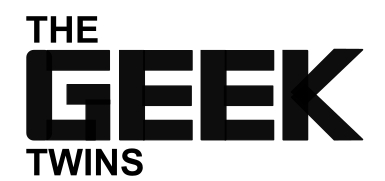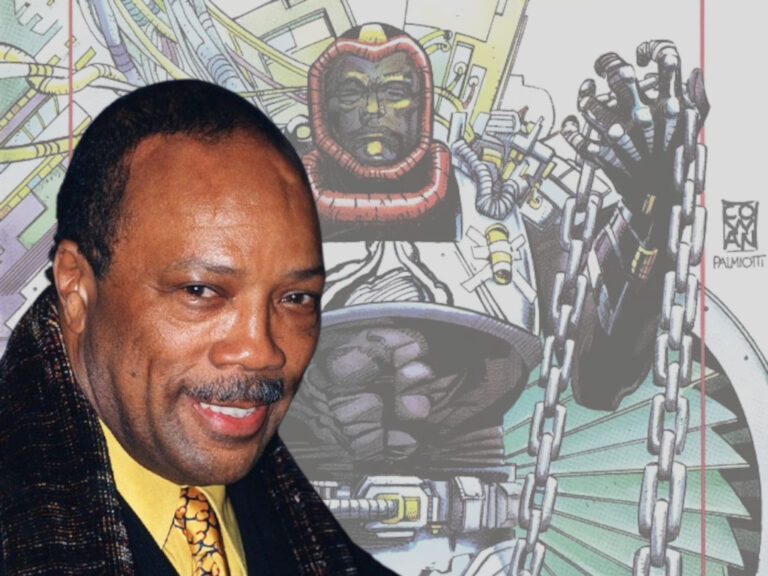Quincy Jones, best known for creating Michael Jackson’s “Thriller” and bringing performers together for 1985’s “We Are the World,” had a long career as a composer and trumpeter who broke down racial barriers in music and film.
He died on Sunday at his Bel Air home, according to his spokesperson. Jones was 91.
The legendary figure won an incredible 28 Grammy Awards as an arranger and producer, and his reputation overlapped with that of Frank Sinatra, Ella Fitzgerald, Duke Ellington, and Lesley Gore.
Quincy Jones is best known as a music producer but was also a co-producer on films and television shows. He started with The Color Purple in 1985 and eventually branched into television shows like Livin’ Large, The Fresh Prince of Bel-Air, and In the House.
But it was in 1997 that he decided to produce a positive black superhero movie starring Shaquille O’Neal.
For those who don’t know, Steel is a 1997 American superhero film inspired mainly by the DC Comics character of the same name. The film stars Shaquille O’Neal as John Henry Irons and his alter-ego Steel, Annabeth Gish as his wheelchair-bound partner Susan Sparks, and Judd Nelson as their antagonist Nathaniel Burke. The plot revolves around an accident perpetrated by Burke, which paralyzes Sparks. Following the accident, Irons resigns from his position. Burke starts mass-making weapons and sells them to criminals. To stop Burke, Irons, and Sparks develop a suit of armor, which transforms Irons into the superhero Steel.
Written and produced by Kenneth Johnson, the film distinguishes itself from the comic book series (and John Henry Irons’ role as a supporting character in Superman) by employing fresh protagonists and adversaries. Steel was a box-office flop, and critics criticized it for its “cheesiness” and weak performances.
So what is Milestone Comics? DC Comics published the dark and brooding superhero Hardware (Curtis Metcalf). Dwayne McDuffie and Denys Cowan created him, and he debuted in Hardware #1 (1993). He is an original character from DC’s Milestone Comics division.
African-American writers and illustrators, including Christopher Priest, Michael Davis, Derek T. Dingle, Denys Cowan, and Dwayne McDuffie, formed the firm Milestone in 1993. The founders wanted to address the stark underrepresentation of minorities in American comics.
Most of the early Milestone stories were set in the fictional midwestern city of Dakota, referred to as the “Dakotaverse,” in the continuity in which all Milestone Media titles were set. Before the release of any titles, McDuffie and other early creators produced a comprehensive “bible” that included background information on all of the original Dakotaverse characters and specifics on Dakota’s history and geography. Cowan created the first character drawings the other artists used as a reference.
Despite being published by DC Comics, Milestone Comics was not subject to the editorial control of DC Comics; DC only had the authority to refuse to print any content they found objectionable. Milestone Media had the last word in all licensing and merchandising agreements involving its titles and maintained rights to them. DC essentially licensed the Milestone comics’ characters, editorial services, and creative content for a yearly fee and a portion of the sales.
It was a groundbreaking concept even today. A live-action movie could have made Hardware a household name. So what happened?
When “Steel” producer David Salzman, along with fellow producer Quincy Jones, first approached O’Neal and Leonard Armato about making a movie based on a comic book character, they had another one in mind—Hardware, a DC Comics futuristic crime fighter who is more violent in tone and actions than Steel.
“Shaq said, ‘Hardware is great, but he’s not as much me as Steel is,’ ” Salzman said, according to the LA Times. “He had a Steel comic with him, and he turned to a page where it showed this giant guy sitting on the tenement steps, surrounded by kids. ‘This is me,’ he said. ‘This is literally me.’ ”
Interestingly, Michael Davis tells a different story. Davis is an artist, writer, mentor, entertainment executive, and co-founder of Milestone.
Steel’s producer, Quincy Jones, originally envisioned Milestone’s Hardware as a Black superhero film. “Q,” as he was known in the industry, met with Milestone and was about to leave with Hardware as his choice. Milestone’s founder suggested that Q speak with their counterparts at DC Comics. There, he was introduced to Steel as a character.
“At the time, I was livid and said so,” Davis told Bleeding Cool. “Why would anyone steer Quincy Jones towards DC Comics? They have Steel, and Steel wears the ‘S’. Exactly what I was afraid would happen did. Q decided to do Steel and just like that Milestone is screwed. But it was our own fault. Yeah, it’s possible Q would have found out about Steel but he came to US looking to US for a hero.”
The production notes for the movie state that Quincy Jones and his partner at QDE (Quincy-David Salzman Entertainment), David Salzman, have been fans of the DC Comics character Steel since he first appeared. Who can say which is more accurate? Maybe there’s a bit of truth in all three stories.
Anyway, would a Milestone movie starring Shaq have been better? It’s impossible to say. But considering O’Neal’s acting range, it’s hard to imagine him capturing the brooding and aggressive nature of Hardware. But at the very least, it would have been a great promotion for the brand.
Quincy Jones contributed significantly to the movie, film, and music industry. Now you know how he also almost contributed to the comic book industry.
Would you have liked to see a live-action movie based on Milestone comics?


